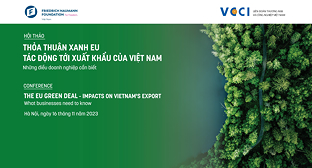How opposing sides view the issue of citrus 'dumping'
13/03/2008 12:00
Carter, who holds a doctorate in agricultural economics and is a professor at the University of California-Davis, contends that
"Every time you grab a gallon of orange juice, you're paying well above the world price because of protection for the industry," he said.
Under
In about half the cases before the U.S. International Trade Commission, which decides whether "dumping" has injured a
"The empirical evidence is clear. Any fluctuation in imports of (orange juice) from
On the opposing side of the debate is Tom Spreen, who also has a doctorate in agricultural economics and is chair of the Food and Resource Economics Department at the
"You have this great big crop in 2003-04, a billion gallons in a typical year, but in 2003-04,
Spreen acknowledged the trade commission is a "somewhat political entity," but has shown its independence in other decisions, for example, one involving Mexican tomato dumping in the 1990s.
As for doing away with the whole tariff system, Spreen said he would feel better if tariffs were not in place but if they were eliminated,
"It wouldn't kill it (the citrus industry) but it would cripple it," he said.
By SARA KENNEDY
skennedy@bradenton.com
Posted on Sunday, March 09, 2008
Source: www.bradenton.com
Các tin khác
- Green production, trade will help wood industry increase export: Viforest (08/05/2024)
- MoF refuses to cut import tax for some materials of animal feed production (08/05/2024)
- DGTR Recommends Anti-Dumping Duty On Chemical Imports From China & Japan (08/05/2024)
- Firms urged to co-operate in anti-dumping probe into imported galvanized steel (08/05/2024)
- Pepper exports hit $353 million in four months amidst soaring prices (08/05/2024)
 Home
Home
 About Us
About Us




















